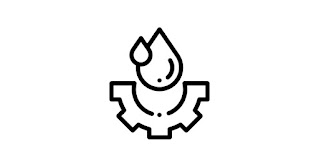1. Fluid is a substance that
(a) cannot be subjected to shear forces
(b) always expands until it fills any container
(c) has the same shear stress at a point regardless of its motion
(d) cannot remain at rest under action of any shear force
(e) flows.
Ans: d
2. Fluid is a substance which offers no resistance to change of
(a) pressure
(b) flow
(c) shape
(d) volume
(e) temperature.
Ans: c
3. Practical fluids
(a) are viscous
(b) possess surface tension
(c) are compressible
(d) possess all the above properties
(e) possess none of the above properties.
Ans: d
4. In a static fluid
(a) resistance to shear stress is small
(b) fluid pressure is zero
(c) linear deformation is small
(d) only normal stresses can exist
(e) viscosity is nil.
Ans: d
5. A fluid is said to be ideal, if it is
(a) incompressible
(b) inviscous
(c) viscous and incompressible
(d) inviscous and compressible
(e) inviscous and incompressible.
Ans: e
6. An ideal flow of any fluid must fulfill the following
(a) Newton’s law of motion
(b) Newton’s law of viscosity
(c) Pascal’ law
(d) Continuity equation
(e) Boundary layer theory.
Ans: d
7. If no resistance is encountered by displacement, such a substance is known as
(a) fluid
(b) water
(c) gas
(d) perfect solid
(e) ideal fluid.
Ans: e
8. The volumetric change of the fluid caused by a resistance is known as
(a) volumetric strain
(b) volumetric index
(c) compressibility
(d) adhesion
(e) cohesion.
Ans: c
9. Liquids
(a) cannot be compressed
(b) occupy definite volume
(c) are not affected by change in pressure and temperature
(d) are not viscous
(e) none of the above.
Ans: e
10. Density of water is maximum at
(a) 0°C
(b) 0°K
(c) 4°C
(d) 100°C
(e) 20°C.
Ans: c

